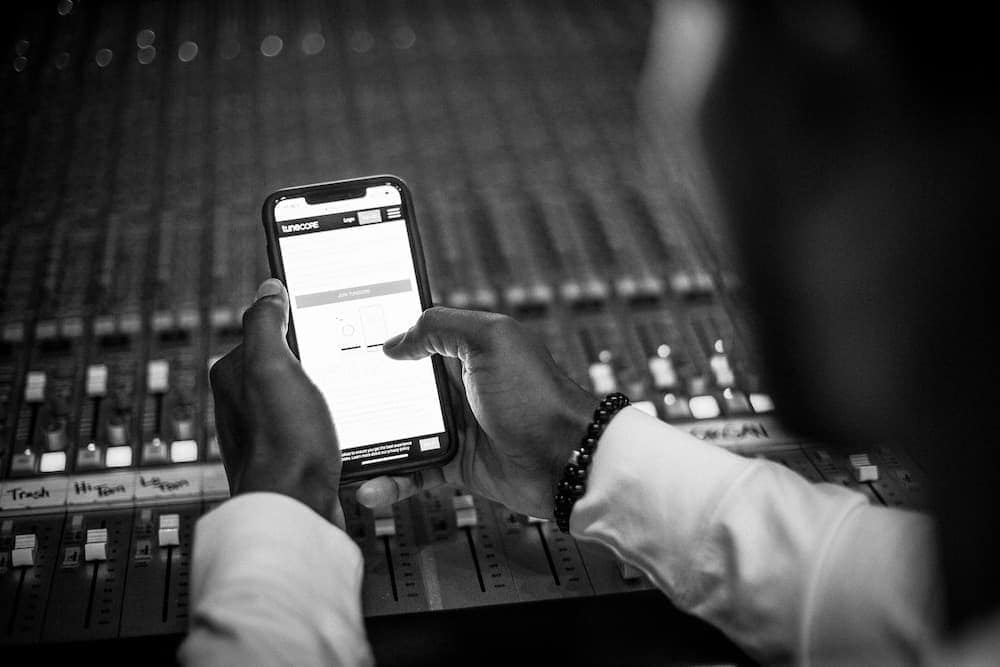Just like a record contract or any other deal, you need to know the risks before signing a merch deal. Not knowing recently landed NBA YoungBoy aka YoungBoy Never Broke Again in court.
5 Things to Know Before Signing A Merch Deal: Just ask NBA YoungBoy aka YoungBoy Never Broke Again
Op-ed by Seamus Menihane, CEO of music merch company Armada
Getting sued by your merch partner is not good. With today’s music business giving artists more direct access and options than ever, it’s easy for relationships to break down due to misunderstood expectations, creative misalignment that leads to delays, and misjudgement on the merch company’s part regarding if they can make back an advance or other investment. Sadly, when this breakdown happens, it can feel for both sides like legal action is the only path forward.
I’ve learned that clear, honest communication from the very start can prevent 99% of these conflicts. Yes, there are bad actors, but most people I’ve worked with want the same thing: to build a presence in this complex business and succeed through strong, lasting partnerships. In other words, to make a difference.
I’d be lying if I said I haven’t seen situations like this up close. That’s why I’m sharing five key steps that can help artists avoid ending up in a business battle with their merch company and help merch companies protect relationships so court isn’t their only option.

1. Vet the People You’re Doing Business With
There’s no official stamp of approval for being a “professional artist manager.” Most of us, myself included, started with zero formal music industry experience, hopped in a van, and just pressed go without looking back. That’s part of what makes this industry thrilling: if you can create real value for artists and deliver on your word, you can get started immediately.
The flip side is that some fundamentals of business management often get overlooked. A big merch advance can be tempting to an Artist/manager who’s been scraping by and suddenly there’s a windfall with a nice commission attached.
For merch companies, it’s critical to understand the intentions of both the artist and their manager before signing. Are they in it for the long haul? Have you discussed where the merch business is headed for the next 2-3 years? What’s the optimal outcome? These conversations will help you spot whether you’re dealing with someone committed, or just passing through. If a manager doesn’t have a proven track record, align with people who you at least get the sense are in it for the long haul.
2. Make advances around certain key cornerstones of the deal
One way to protect both sides is to tie large advance payments to specific trigger events. For example, if your total commitment is a certain amount, pay a certain percent at signing and the rest only when the first merch drop goes live. Or just pay the full amount at launch.
This ensures your team is engaged from day one and prevents the deal from stalling in the idea phase. Too often, we underestimate the work it takes to move from concept to product. Without clear milestones, your investment could sit idle while decisions pile up and progress slows.
3. Discuss operational processes before entering into a deal
Who comes up with the designs? Who has final approval? How many social media posts will be dedicated exclusively to promoting a new product? And be honest: do you usually take a week to reply to emails?
These details might seem small, but they’re critical to a smooth partnership. Get them agreed upon before any money changes hands. While moving too slowly can kill a deal, rushing in without operational clarity can be just as dangerous.
Make sure you know exactly who will make decisions, deliver assets, and keep the communication flowing. Thorough onboarding up front makes for a strong partnership.
4. Add a “Change of Team” Clause
This one’s a bit more practical and less conceptual. Every merch partnership needs a reliable, consistent point of contact on the artist’s side. Someone empowered to make decisions without you chasing five different people for one approval. No matter how big the client, most deals ultimately boil down to one or two key decision-makers.
Over time, those people can change, and when they do, a dangerous information gap can open up. Worst-case scenario? The artist has no idea they’re even in a merch contract because they’ve been insulated by their management. My assumption is that some version of this may have contributed to the unfortunate dispute between YoungBoy and his merch provider.
A simple safeguard is to include a clause allowing the agreement to be fairly unwound if the designated point person leaves the artist’s organization. At the very least, a good manager should make sure the artist knows who their merch provider is and what value the partnership is delivering to minimize disruption if roles change. Sadly, that’s not always the case.
Sometimes, a band might want to hand over their upcoming arena tour merch to their friend with a screen-printing setup in their basement. (The quality of that decision is debatable, but since that’s basically how I got my start, I’m not here to kill anyone’s ambition.) The reality is, that simply can not happen if you’ve already been paid $1M for your exclusive merch rights. That’s why there must be crystal-clear communication between management and artist and a safety net in the contract in case that communication breaks down. I also recommend quarterly “team” meetings so the artist hears updates directly from the source. Facetime with clients is crucial.
5. Sometimes, Don’t Take an Advance at All
If you need capital to start a tour, a merch partner can support you without muddying the deal with a massive merch advance attached. One option is to cover specific startup costs or structure it more like a straight-forward loan. In that setup, both sides agree on exactly how much money is being provided and the timeline for paying it back, just like a term loan at a bank. The key difference is that this money isn’t an open-ended advance tied to merch sales; it’s a fixed, predictable arrangement with clear repayment terms.
While merch companies aren’t banks, creative structures can foster strong partnerships and buy-in without fronting $1M in cash. Leading with capabilities and long-term value, such as a competitive royalty split, increased ad spend, or free shipping for tour orders, can sometimes be more attractive than a check.
Yes, many artists chase upfront money and the time value of money is real, but if a merch company can show that its services will generate more value over time, the result can be a better, longer-lasting deal at a more favorable rate for the company and with less pressure on the artist. For example, instead of a massive advance, a potential merch partner might agree to cover the upfront costs of tour merchandise, fund production for a capsule merch collection, or provide a short-term loan that gets repaid from VIP ticketing sales. These types of targeted structures are often cleaner, less risky, and still give you, the artist, the runway you need without locking either side into a lopsided deal.
Deals in this business come in all shapes and sizes, and there’s no single blueprint for success. One thing is constant: relationships are the foundation. It’s never fun to see a dispute unfolding in real time in the news, and I hope YoungBoy and his merch company can work things out. You don’t have to follow in their footsteps. If both sides communicate clearly about goals and expectations from the start, you’ll avoid most of the headaches that can land you in legal dispute. And you’ll likely get some sick merch and a strong partner in the bargain.


Seamus Menihane is the CEO of music merchandise company Armada whose clients include Alicia Keys, Ace Frehley and Morgan Wade and record labels including Death Row and Vagrant.
5 Things to Know Before Signing A Merch Deal: Just ask NBA YoungBoy aka YoungBoy Never Broke Again first appeared on Hypebot.com.




